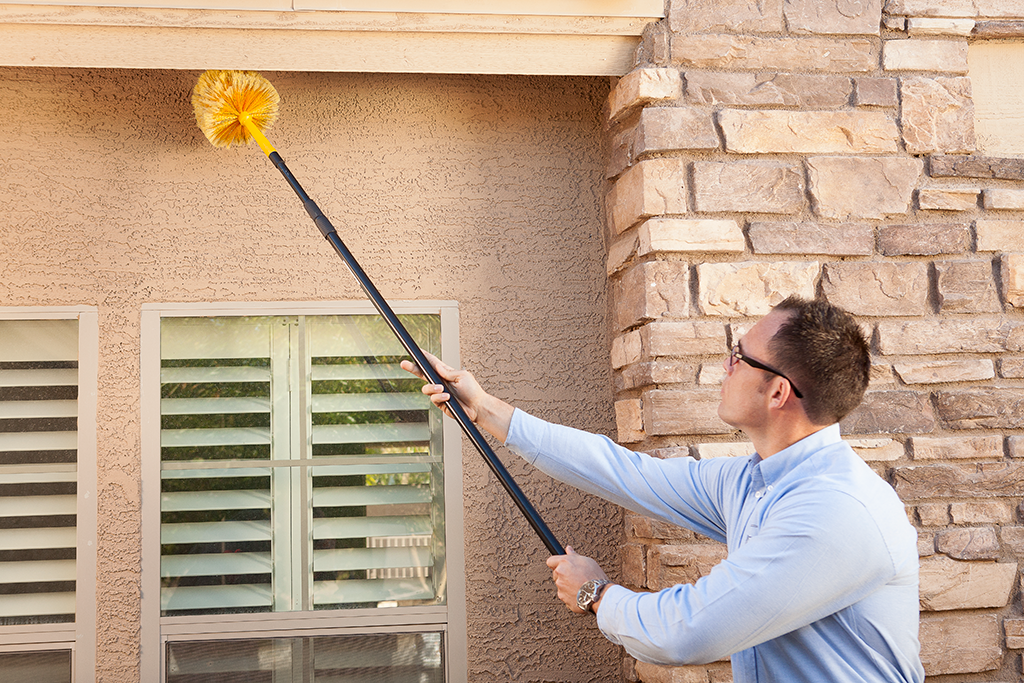As a homeowner, one of the last things you want to discover in your living space is a spider infestation. Not only can spiders be unsettling to some, but they can also pose health risks if left unchecked. In this comprehensive guide, I will share valuable insights and practical tips on how to effectively control and prevent spider infestations in your home. From identifying common spider species and their habits to exploring DIY methods and natural remedies, you will gain the knowledge needed to maintain a spider-free environment.
Spider Pest Control
Spider pest control is a crucial aspect of home maintenance. Spiders are arachnids with eight legs and play an essential role in our ecosystem by controlling other pests like flies and mosquitoes. However, when they invade our homes in large numbers, it can be unnerving and potentially dangerous. Understanding the basics of spider infestations is the first step towards effective control.
Common Spider Species and Their Habits
To effectively combat spiders, it is essential to familiarize yourself with common spider species and their habits. Some of the most encountered spiders in households include the cellar spider, wolf spider, and black widow spider. Each species has distinct characteristics, preferred habitats, and behaviors. By understanding these differences, you can tailor your pest control methods accordingly, increasing their effectiveness.
Signs of a Spider Infestation in Your Home
Identifying the signs of a spider infestation is crucial for prompt action. While it’s common to spot a spider here and there, an infestation is indicated by an increased presence of spiders, webs, and egg sacs. Cobwebs in corners, basements, and crawl spaces are common indicators. Additionally, if you notice an abundance of discarded exoskeletons or an unusual number of spider bites, it may be a sign of a larger problem. Being aware of these signs can help you act quickly to address the infestation.
Health Risks Associated with Spider Bites
While most spider bites are harmless, there are a few species that pose potential health risks. Black widow spiders and brown recluse spiders are known for their venomous bites, which can cause severe pain, swelling, and other systemic symptoms. It is important to be able to identify these spiders and seek medical attention if you suspect a bite from one. By understanding the health risks associated with spider bites, you can prioritize effective pest control measures to safeguard your family’s well-being.
DIY Spider Pest Control Methods
When it comes to spider pest control, there are several do-it-yourself methods you can employ. One of the most effective approaches is regular cleaning and decluttering. By keeping your home tidy and removing potential hiding spots, you can discourage spiders from taking up residence. Additionally, sealing cracks and crevices, installing door sweeps, and using spider repellents can further deter these pests. However, it’s important to note that DIY methods may not be as effective for severe infestations or certain spider species.
Natural Remedies for Spider Control
For those seeking non-toxic alternatives, natural remedies for spider control can be highly effective. Essential oils such as peppermint, tea tree, and lavender are known to repel spiders. These oils can be diluted with water and sprayed in areas prone to infestation. Other natural remedies include the use of vinegar, citrus peels, and chestnuts. While these methods are generally safe and eco-friendly, it’s important to remember that individual results may vary.
Hiring Professional Spider Exterminators
In cases of severe infestations or when dealing with venomous spider species, it is advisable to seek the assistance of professional spider exterminators. These experts have the knowledge, experience, and specialized equipment to effectively eliminate spider infestations. They can conduct thorough inspections, identify the root cause of the infestation, and implement targeted treatments to ensure long-lasting results. Hiring professionals can provide peace of mind and save you time and effort in dealing with stubborn spider problems.
Preventing Future Spider Infestations
Once you have successfully eliminated a spider infestation, it’s important to take preventive measures to avoid future occurrences. Regular maintenance, including vacuuming, dusting, and sealing entry points, can significantly reduce the likelihood of spiders finding their way into your home. Outdoor maintenance, such as trimming vegetation and removing debris, can also help deter spiders from setting up camp near your property. By adopting these preventive measures, you can minimize the risk of future spider infestations.
Spider Pest Control Products and Equipment
For those who prefer a hands-on approach, there are various spider pest control products and equipment available in the market. Spider traps, sticky traps, and insecticides formulated specifically for spiders can be effective tools in managing infestations. It’s important to carefully follow the instructions provided and use these products safely and responsibly. However, it’s recommended to consult professionals or conduct thorough research before using chemical-based solutions, especially if you have children, pets, or sensitive individuals in your household.
Maintaining a Spider-Free Home
Maintaining a spider-free home requires a combination of knowledge, proactive measures, and, in some cases, professional assistance. By understanding the habits and behaviors of common spider species, recognizing signs of infestation, and implementing preventive measures, you can effectively control and prevent spider infestations. Whether you choose to employ DIY methods, natural remedies, or seek professional help, the key is to take prompt action and remain vigilant. By following the tips and techniques outlined in this guide, you can enjoy a home that is arachnid-free and conducive to a comfortable living environment.

